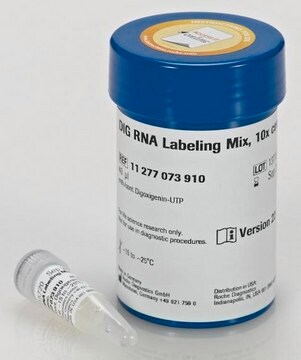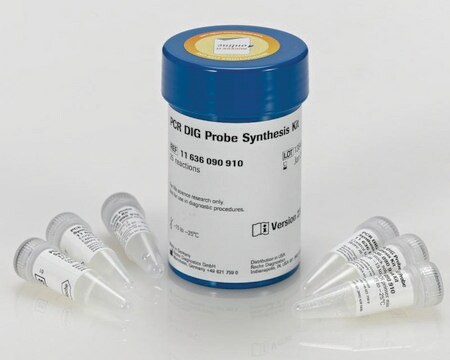EMU015451
MISSION® esiRNA
targeting mouse Hif1a
About This Item
Productos recomendados
descripción
Powered by Eupheria Biotech
Nivel de calidad
Línea del producto
MISSION®
Formulario
lyophilized powder
secuencia objetivo ADNc esiRNA
CCAGCCTAACAGTCCCAGTGAATATTGCTTTGATGTGGATAGCGATATGGTCAATGTATTCAAGTTGGAACTGGTGGAAAAACTGTTTGCTGAAGACACAGAGGCAAAGAATCCATTTTCAACTCAGGACACTGATTTAGATTTGGAGATGCTGGCTCCCTATATCCCAATGGATGATGATTTCCAGTTACGTTCCTTTGATCAGTTGTCACCATTAGAGAGCAATTCTCCAAGCCCTCCAAGTATGAGCACAGTTACTGGGTTCCAGCAGACCCAGTTACAGAAACCTACCATCACTGCCACTGCCACCACAACTGCCACCACTGATGAATCAAAAACAGAGACGAAGGACAATAAAGAAGATATTAAAATACTGATTGCATCTCCATCTTCTACCCAAGTACCTCAAGAAACGACCACTGCTAAGGC
Ensembl | nº de acceso | ratón
Nº de acceso NCBI
Condiciones de envío
ambient
temp. de almacenamiento
−20°C
Información sobre el gen
mouse ... HIF1A(15251) , Hif1a(15251)
Descripción general
For additional details as well as to view all available esiRNA options, please visit SigmaAldrich.com/esiRNA.
Información legal
Código de clase de almacenamiento
10 - Combustible liquids
Punto de inflamabilidad (°F)
Not applicable
Punto de inflamabilidad (°C)
Not applicable
Elija entre una de las versiones más recientes:
¿Ya tiene este producto?
Encuentre la documentación para los productos que ha comprado recientemente en la Biblioteca de documentos.
Nuestro equipo de científicos tiene experiencia en todas las áreas de investigación: Ciencias de la vida, Ciencia de los materiales, Síntesis química, Cromatografía, Analítica y muchas otras.
Póngase en contacto con el Servicio técnico





